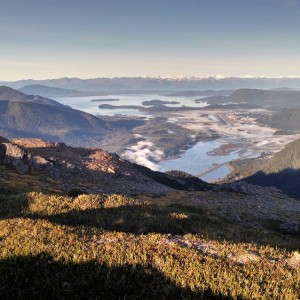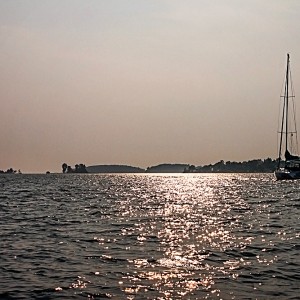The Stream, October 28: Asia-Pacific Recorded 40 Percent of World’s Disasters in Last Decade
The Global Rundown |
Natural disasters in the Asia-Pacific region accounted for nearly half of the world total in the past decade, highlighting the need to invest in measures to protect against future disasters and climate change, according to a United Nations report. Thailand urged farmers not to plant rice this season due to a drought and large rice stockpiles, low water levels on two major rivers in Germany continued to hinder shipping, and the Shell oil company canceled one of its oil sands projects in Alberta. States in the Great Lakes region are creating a new economy around water.
“We’re worried about this intensifying situation. There’s risk that drought could damage rice crops. The government hopes farmers will not plant rice during the dry season as we have warned them in advance about inadequate water supply.” –Chatchai Sarikulya, Thailand’s minister of agriculture and cooperatives, on an El Nino-linked drought and the government’s goal to cut down on the country’s rice surplus. (Bloomberg)
By The Numbers |
80,000 barrels per day Amount of oil that could have been produced at the Carmon Creek oil sands project in Alberta, which the Shell oil company canceled due to low oil prices and a lack of pipeline infrastructure. Some new pipeline projects, like the Keystone XL, have been stalled by environmental concerns. Guardian
Science, Studies, And Reports |
Forty percent of the world’s natural disasters between 2004 and 2014 occurred in the Asia-Pacific region, killing half a million people, according to a new report released by the United Nations. The report said more needs to be done to protect the region from climate change and prepare for disasters. Reuters
On The Radar |
Low water levels continue to hinder shipping on the Danube and Rhine rivers where they flow through Germany. Lower water forces companies to load less cargo on each ship. Reuters
States in the Great Lakes region are aiming to use their water resources to foster a “Blue Belt” economy based on technology and specialty agriculture. They hope the Great Lakes will draw people and businesses back to the region, especially in light of the severe droughts affecting the southwestern United States. The Republic
A news correspondent for Circle of Blue based out of Hawaii. She writes The Stream, Circle of Blue’s daily digest of international water news trends. Her interests include food security, ecology and the Great Lakes.
Contact Codi Kozacek






Leave a Reply
Want to join the discussion?Feel free to contribute!